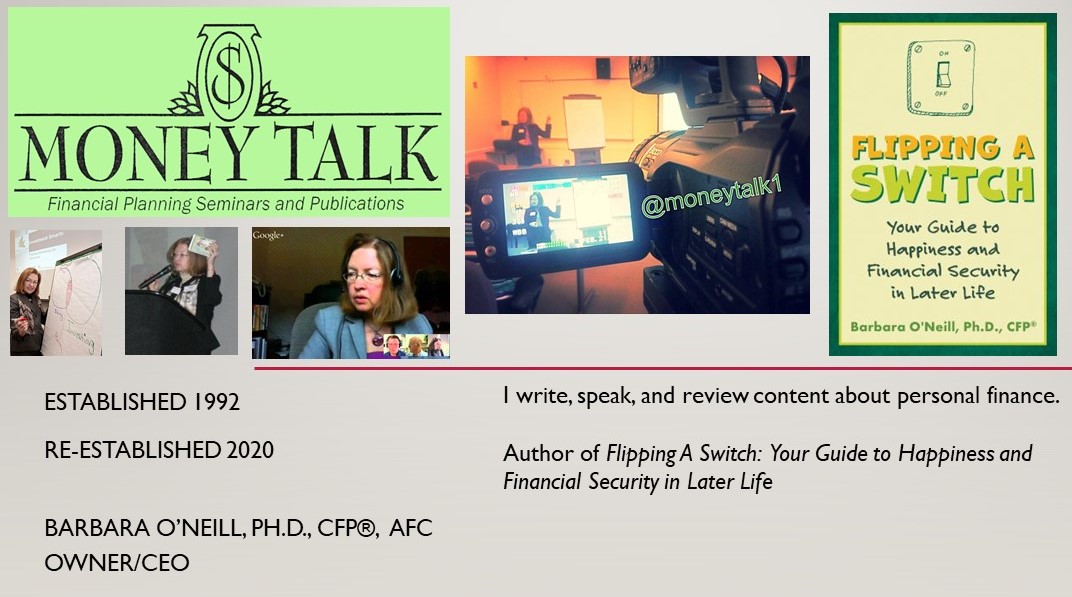I recently taught a class with the same title as this post. It began with a summary of recent “scary” economic events: recession fears, rising interest rates, bank failures, volatile stock prices, increased costs of basic expenses due to inflation, layoffs, low savings rates, increasing credit card APRs and household debt, housing unaffordability, and more.
The remainder of the class described ways for people to protect themselves during uncertain financial times. Below are some key take-aways:
Self-Assess Your Fears-
Admit that you are nervous. Then write down your biggest financial fears (e.g.,
unemployment, homelessness). Next, ask yourself how realistic they are. Also,
tune out market “noise” (e.g., daily financial reports on television) if this
triggers financial anxiety.
Understand Historical
Investment Returns- Avoid market timing, which is generally
futile. When people jump in and out of stock investments, they tend to miss key
“up days” when markets (and stock prices) rebound. Investment volatility is
normal and to be expected.
Control What You Can-
Spend less on discretionary expenses to offset higher fixed expenses due to
inflation, accelerate debt repayment (snowball or avalanche method), get estate
planning documents in order, diversify investments, and develop healthy living
habits (e.g., exercise).
Earn More on Your Money-
Take advantage of the higher returns from online bank savings and money market
accounts and money market mutual funds available through investment companies.
To hedge uncertainty about future interest rates, purchase a laddered portfolio
of certificates of deposit (CDs) with staggered maturity dates and different
interest rates.
Rebalance Your Portfolio-
Set target percentage weights for asset classes (e.g., stocks, bonds, cash
equivalents) and rebalance periodically by selling over-weighted assets and
buying what is underweighted. Sign up for free automatic investment rebalancing
services, if available.
Annual Financial
Check-Up- Keep tabs on your finances with the following
check-up metrics: net worth statement, cash flow statement, spending plan
(budget), credit report and score, consumer debt-to-income ratio, and income
tax withholding review.
Learn From Your Tax
Return- Review your latest tax return and identify changes
from previous years. Change withholding and/or quarterly estimated payments if
changes are needed. Do a mock-up 2023 tax return each Fall to identify
tax-saving opportunities before year-end.
This post provides
general personal finance or consumer decision-making information and does not
address all the variables that apply to an individual’s unique situation. It does
not endorse specific products or services and should not be construed as legal
or financial advice. If professional assistance is required, the services of a
competent professional should be sought.






No comments:
Post a Comment